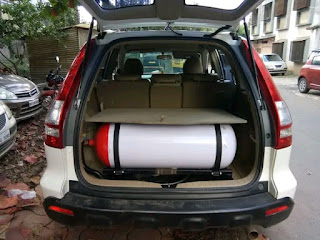A lot of questions are asked, especially when it comes to using CNG or LPG in cars and generators. Is there really any distinctions between these two fuels in simple terms.
CNG FOR CARS AND GENERATORS
CNG, or compressed natural gas, is primarily composed of methane gas. Here are some key points to know about CNG:
* CNG is mainly made up of methane gas, which is a clean-burning fuel. It produces fewer emissions compared to traditional gasoline or diesel fuels, making it an environmentally friendly option.
* CNG is stored in high-pressure cylinders as a compressed gas. These cylinders are designed to withstand high pressures, allowing for the storage of a significant amount of fuel in a relatively small space.
* CNG is commonly used as an alternative fuel for vehicles, including cars, buses, and trucks. It can also be used to power generators for electricity generation in some applications.
LPG FOR CARS AND GENERATORS
LPG, or liquefied petroleum gas, is a mixture of propane and butane gases. Here's what you need to know about LPG:
* LPG is a mixture of propane and butane gases, which are derived from natural gas processing and crude oil refining. It is a versatile fuel that can be used for various applications, including transportation and power generation.
* LPG is stored in cylinders as a liquid under moderate pressure. The liquid form allows for the storage of a large amount of fuel in a relatively small space, making it suitable for use in vehicles and generators.
* LPG is commonly used as an alternative fuel for vehicles, particularly in areas where CNG infrastructure is limited. It can also be used to power generators for backup electricity generation or in off-grid locations.
Key Differences
1. The main difference between CNG and LPG lies in their composition. CNG is composed primarily of methane gas, while LPG is a mixture of propane and butane gases.
2. CNG is stored as a compressed gas in high-pressure cylinders, whereas LPG is stored as a liquid under moderate pressure. This difference in storage methods affects the design of vehicles and generators that use these fuels.
3. Both CNG and LPG are considered cleaner-burning fuels compared to gasoline and diesel. However, the specific emissions profiles may vary slightly between the two fuels due to differences in composition and combustion characteristics.
In the end, while both CNG and LPG offer cleaner-burning alternatives to traditional fuels for cars and generators, they differ in composition, storage methods, and usage. The one you choose can be mainly decided due to the availability and cost.



does one need another conversion kits for CNG when I am already using LPG
ReplyDeleteGood day to you. Yes. You definitely need conversion kits specifically made for running on CNG. LPG and CNG are different in nature and operates differently. So. You do need to get CNG kits, and your vehicle have to be converted to use CNG gas, before even considering refilling CNG. Anything otherwise, is very dangerous and not safe. Thanks
ReplyDelete